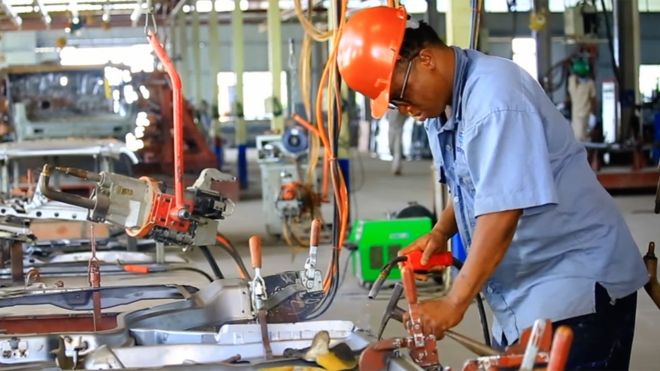Amid Nigeria’s most severe foreign exchange crisis in nearly a decade, local manufacturers are increasingly sourcing raw materials domestically to mitigate the impact of rising dollar demand and limited supply.
The crisis, aggravated by the naira’s depreciation of over 70 percent following the 2023 currency float, has significantly raised costs for manufacturers reliant on imported inputs such as hot-rolled steel and chemical gums.
In response, companies are shifting towards local alternatives to sustain production. FrieslandCampina WAMCO, a notable example, collaborates with over 20,000 pastoralists across various states, including Oyo, Osun, Ogun, Ondo, and Kwara, to source raw milk for its products.
This move aligns with the broader industry trend of minimizing exposure to foreign exchange volatility.
Nigerian Breweries, another industry giant, has invested N78 billion over five years in cultivating sorghum and cassava, key ingredients for brewing beer.
Hans Essaadi, the company’ manager, emphasised the firm’s commitment to advancing local sourcing, expanding partnerships with farmers, and enhancing agricultural output through research initiatives aimed at boosting yields in northern Nigeria.
Similarly, Nigeria’s cement industry has embraced local sourcing, with Dangote Cement, BUA Cement, and Lafarge Africa utilizing domestically sourced limestone, gypsum, clay, and silica for production. Meanwhile, Nestlé has made strides in developing local suppliers for ingredients like onion powder and turmeric, and PZ Wilmar has successfully tapped into domestic palm oil plantations, contributing significantly to PZ Cussons’ profits.
However, despite these backward integration efforts, rising costs of processing and importing essential raw materials persist, fueled by high energy prices, logistics challenges, and foreign exchange constraints. In the first half of 2024, raw material costs for major manufacturers, including BUA Foods, Nigerian Breweries, and Dangote Sugar Refinery, surged by 121 percent to N1.27 trillion compared to the previous year.
The manufacturing sector faces further pressure from Nigeria’s high interest rate environment. In September 2024, the Central Bank of Nigeria raised the monetary policy rate to 27.5 percent, pushing borrowing costs for manufacturers to over 35 percent, compounding their financial strain. Industry leaders, such as Segun Ajayi-Kadir of the Manufacturers Association of Nigeria (MAN), have warned that these rising costs threaten to undermine competitiveness and reduce production capacity.
With 767 manufacturers shutting down operations in 2023, the sector is in urgent need of reforms. Ike Ibeabuchi, an emerging markets analyst, highlighted the critical need for single-digit interest loans and stable electricity tariffs to stabilize the sector. He also urged manufacturers to explore new markets to enhance forex earnings and alleviate the ongoing crisis.













